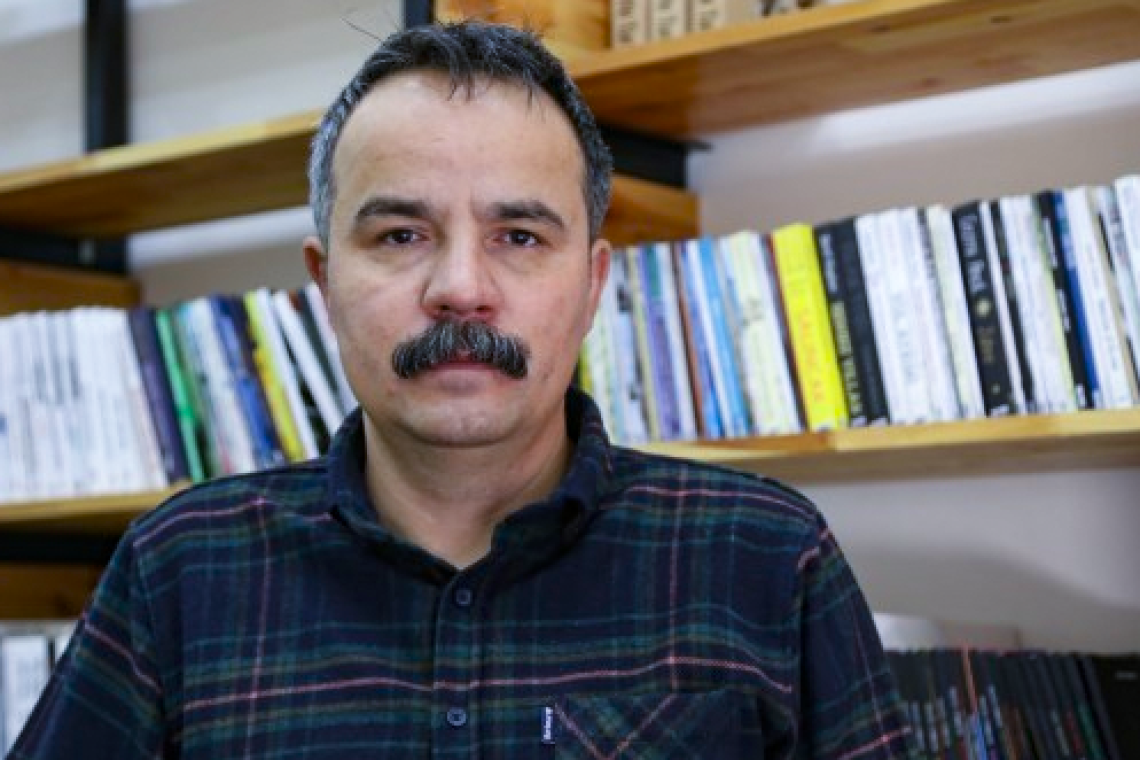Sociologist and writer Veli Saçılık faces prosecution for allegedly spreading “misleading information” following a critical social media post about government rescue efforts after Turkey’s devastating February 6 earthquake. During a hearing in Ankara's 10th Criminal Court of First Instance, a prosecutor argued that Saçılık should be punished under Article 217/A, a controversial law known as the "disinformation law," which criminalizes publicly sharing misleading information. The prosecutor asserted that despite survivor testimonies supporting Saçılık’s claims, his post spread “hearsay and false information” about rescue operations.
Saçılık’s post criticized the state response, saying, “The first three days after the earthquake were crucial for rescue efforts. By saying, ‘We will not allow any individuals or organizations other than AFAD,’ they condemned people to death.” The prosecutor argued that such statements constituted a violation of Turkey’s disinformation law, which press organizations have condemned as a "censorship law" for stifling criticism.
Survivors Semih Eskiocak and Elif Torun Öneren, who testified in court, shared harrowing experiences from the aftermath of the earthquake, corroborating Saçılık’s claims. Eskiocak, who filmed the scene that Saçılık shared, said he recorded it 28 hours after the earthquake to highlight the lack of aid. He added that despite losing multiple family members, he received no outside assistance, even five days later.
Elif Torun Öneren, another witness, described waiting for rescue and witnessing delays. “I was rescued by my cousin 16 hours after the quake, and no aid arrived for the first 5 to 6 days. I saw civilians distributing soup being blocked by IHH [Humanitarian Relief Foundation] workers. My son-in-law arranged for a crane, but officials prevented it from entering Antakya due to restrictions,” she testified, calling these restrictions “a massacre” given the human cost. “If cranes had arrived on the first day, these deaths wouldn’t have happened. It only took 20 minutes to pull people out once we had a crane,” she added.
Despite these accounts, the prosecutor dismissed Saçılık’s defense, arguing that “hearsay” information shared on social media ignored the nationwide mobilization that was broadcast on live television. The prosecutor maintained that Saçılık’s statements were aimed at evading responsibility for misinformation and requested punishment under Article 217/A.
Saçılık’s lawyer, Senem Doğanoğlu, contested this characterization, asking the prosecutor to define “hearsay” information and offering to bring 10 witnesses from each affected city to support Saçılık’s account. Although the court denied her request to present additional witnesses, it granted time to prepare a response to the prosecutor’s statement. The next hearing is scheduled for Dec. 28, 2024.



